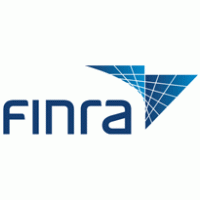FINRA releases list of 'red flags' for fraud involving low-priced securities
Chris Hamblin, Editor, London, 14 February 2021

The US federal Financial Regulatory Authority has issued regulatory notice 21-03 in which it outlines many fraudulent activities to do with cheap securities, both on the part of third-party promoters and of HNW customers.
FINRA has observed some activities that may be warning signs of fraud involving low-priced securities on the part of third-party promoters, which ought to be of interest to HNW investors and their wealth managers/registered representatives. These are:
- hyping and promoting issuers (or their products or services), especially when the information cannot be reliably confirmed;
- promotional investor email alerts, banner advertisements, dedicated promotional websites or seemingly independent news or research coverage, which prominently feature or advertise the issuer’s new potential business prospects that (1) may be related to the latest trend (e.g., winning a large contract or developing a new product or service), (2) may also present recent or projected investment returns, and (3) cannot be reliably confirmed;
- generating a spike in social media promotions (perhaps on Twitter, Instagram or Facebook), and activity in investor chat rooms or message boards; or
- conducting unsolicited phone calls or sending text alerts to tout specific stocks to garner interest from registered representatives and investors.
FINRA has observed some activities that may be warning signs of fraud involving low-priced securities on the part of HNW customers. These apply:
- when customers deposit large blocks of thinly traded low-priced securities, whether the securities are marked with a restrictive legend or not, particularly of issuers that recently changed business models to take advantage of the latest trend;
- when customers engage in transactions that are consistent with an intent to affect the price of a low-priced stock, such as small purchases executed on behalf of a customer who owns a very large amount of the same low-priced stock, and do not have a legitimate investment rationale for the transactions;
- when customers engage in a pattern of purchasing a low-priced security right before market close (which may be indicative of an attempt to mark the close);
- when customers or other parties ask the firm to file a FINRA Form 21110 to initiate or resume quotations for an issuer that recently changed business models — often to take advantage of the latest trend — or was recently subject to a trading suspension;
- when current officers, former officers, significant shareholders or family members of these individuals trade low-priced securities prior to a corporate announcement or stock promotion campaign;
- when one or more customer suddenly trades the securities of a thinly traded issuer — often one that makes claims related to the latest trend — on opposite sides of the market, potentially leading to manipulative trading;
- when customers, particularly "specified adults," (see below) who are being solicited to purchase low-priced securities where (1) the customer has not invested in low-priced securities previously; (2) the purchase is outside the customer’s investment or risk profile; or (3) the low-priced security constitutes a large concentration of the customer’s investments;
- when a number of new customers open accounts (particularly if they reside overseas and communicate with the firm only through electronic means) and either deposit shares of the same issuer or were introduced by the same individual to the firm; or
- when customers, including financial institutions, route high-volume or frequent sell orders (with no buys) for low-priced securities to the firm for execution.
These last include HNW customers who maintain execution-only relationships with the firm, or use omnibus or Delivery versus Payment/Receive versus Payment (DVP/RVP) accounts for such transactions.
A “specified adult” is defined in FINRA Rule 2165 as: (A) a natural person aged 65 and older; or (B) a natural person aged 18 and older whom a firm reasonably believes to have a mental or physical impairment that renders him unable to protect his own interests.












